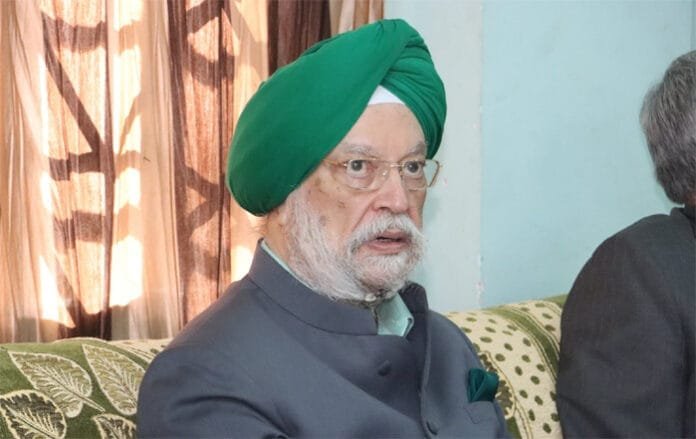Union Petroleum and Natural Gas Minister Hardeep Singh Puri on Friday clarified that India has not imposed a ban on purchasing crude oil from Russia. He warned that any disruption in Russian oil supplies could have serious consequences globally.
India’s Position on Sanctions
Speaking to reporters, Puri cited examples of Iran and Venezuela, noting that India, as a responsible international member, has always complied with sanctions. He emphasized that Russia remains the second-largest global crude oil supplier, producing around 10 million barrels per day, and removing such a key producer could force cuts in consumption worldwide.
“Energy is something you cannot live without… If you remove the second-largest producer, you will have to cut consumption. The consequences will be very serious,” Puri said.
Context: US Trade Duties
Puri’s comments come amid US-imposed 25% duties, plus an additional 25% punitive duty, on India’s imports of crude oil and weapons from Russia. The statements coincide with ongoing India-US trade discussions.
Oil Procurement & Pricing Strategy
The minister highlighted that price limits are applied to Russian oil purchases, encouraging Indian companies to buy at lower prices whenever possible. He also noted that countries such as Turkey, Japan, and the European Union continue to import Russian oil, though discounts currently offered are not significant.
Puri stressed the importance of maintaining a broad balance between oil supply and demand, expressing hope that crude oil prices stabilize around US$65-68 per barrel.
US Interests & Global Oil Market
The minister also explained that the US, as a major oil producer with significant shale gas production, has an interest in ensuring global fossil fuel prices do not fall too low. Political instability and inflationary risks further necessitate this approach.
Indian Oil Companies’ Autonomy
Finally, Puri clarified that state-owned oil marketing companies independently decide the sources of crude oil for refining. He emphasized that these companies operate under professional management and boards, ensuring efficiency and strategic decision-making.














